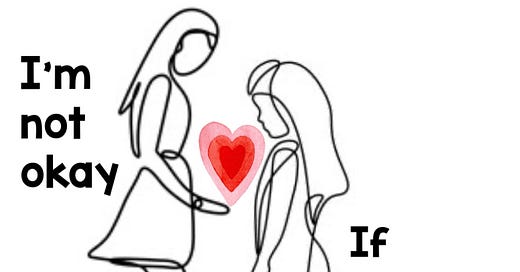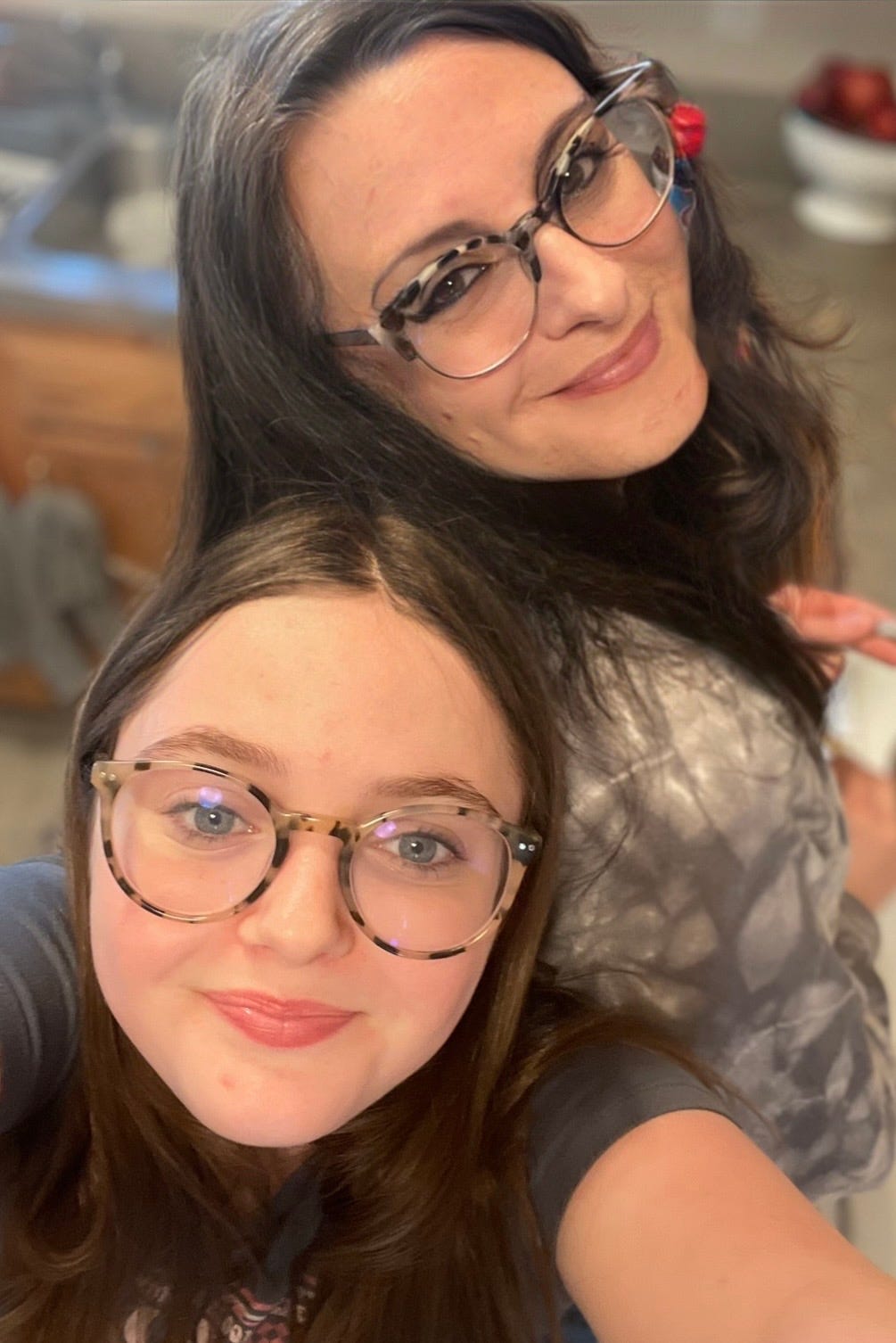It’s been a tough week. Seven days ago, I went into my middle daughter’s room to kiss her goodnight and found her sobbing, begging me to pull her out of school and enroll her in online learning. She said, “I want to die.” I wasn’t sure if it was literal or hyperbole, but either way, it stopped me cold. I sat on her bed and gently stroked her hair, trying to calm her down. This wasn’t the first time I’d found her in this state.
I asked her what happened. Through tears, she explained that the girls in her so-called friend group had been giving her the cold shoulder—again. I hesitate to call it bullying because it’s not outright name-calling or public humiliation. It’s subtler than that: the whispered conversations that stop when she walks by, the eye rolls, the silent lunches. She admitted that she’s often ignored, even when she tries to engage with them.
And it’s not just about lunch. Last weekend, she was the only one in the group excluded from a birthday party, a situation that has played out more than once this year, as I’d mentioned in this article:
It wasn’t so much that she desperately wanted to go—she didn’t—but being left out hurt, especially when the other girls gleefully posted TikToks from the party for everyone to see.
The backstory is complicated. A new girl, let’s call her Jane, joined their school this year and quickly latched onto my daughter. At first, my daughter was happy to show her the ropes. Jane was shy and often asked her to take bathroom breaks with her, a request my daughter tried to accommodate despite growing increasingly anxious about being late to class. One day, when Jane begged her not to leave the restroom as the bell rang, my daughter felt trapped. She finally told me it was stressing her out.
I suggested she gently explain to Jane that she didn’t need a bathroom buddy anymore. My daughter hates confrontation—no idea where she gets that (kidding)—so we agreed she could send a text instead. It seemed like a good plan at the time. But Jane didn’t take it well.
The messages my daughter received in response were nasty, full of expletives and accusations. Still, she kept her cool, trying to reason with Jane and defuse the situation. Eventually, she said she was tired and needed to go to sleep. That only made things worse. Jane kept texting well past midnight, sending more angry messages and, finally, telling my daughter she was “done” with her.
I told my daughter I was proud of how she handled it. She didn’t stoop to Jane’s level, which plenty of kids—and adults—would have done. I assured her it would probably blow over.
It didn’t. Two months later, Jane hasn’t let it go, and one by one, my daughter’s friends have started icing her out. She thinks Jane is spinning the situation to make her look like the villain. Is there more to the story? Maybe. But I can only go by what my daughter has told me, and from where I’m sitting, it seems pretty one-sided.
I’ve encouraged her to branch out and make new friends, but she’s resistant. “Everyone else is weird,” she says. I’m trying to help her shift that attitude because, let’s be honest, it’s not any kinder than the way her current friends are treating her.
I’ve debated going to the other parents, but she’s getting older, and I don’t want to helicopter her through every challenge. I also haven’t ruled it out. I don’t want to pull her out of school either, because I want her to learn how to navigate situations like this. But seeing her hurt is unbearable.
We haven’t attended church much this past year, but we went on Christmas and ended up sitting near Jane’s family. Afterward, I tried to introduce myself, but they bolted before I had the chance. Back then, my daughter and Jane were still close, and my older daughter, who was home for winter break, noticed something that I missed. “That girl seems like trouble,” she told me later. When I asked why, she couldn’t put her finger on it. “Just a bad-news vibe,” she said, adding something about the heavy eye makeup. At the time, my husband and I shrugged it off.
Now, I wish I’d asked more questions.
Seventh grade was hard for me, too. Like my daughter, I hated confrontation. My solution back then was to avoid the girls and befriend the boys. Not exactly a foolproof plan, but it helped me survive.
I desperately want to help her but I don’t have a solution. What I do know is that it’s tearing me up inside to see my child hurting, and I’m struggling to figure out how best to help her.
If any of you have been through a similar situation or have any helpful advice, please feel free to share your ideas in the comments.
I want to express my gratitude to each and every one of you for all of your support, reading, engaging, and of course, sharing.
I can't stress enough, the power of sharing. For the past year or so, I have felt an ever-increasing desire to make a difference in this world. Posting an article may provide a handful of people some sound advice or help them to feel less alone, but if each person who reads an article also shares, and then next group shares with their respective audience, etc, image the reach as well as the potential impact. You can share with just the touch of a button and it doesn't cost a cent!
You can make a donation through the following website:
To reach as many people as I can, I would like to keep my content free but if you enjoy my articles and are able, please consider becoming a paid subscriber. Wishing all of you so much love and light!
XO-
Tirzah







Thank you. I do wish I had the ability to send her to a new school, but we would have to pay tuition to do so and that’s just not financially feasible right now. The only alternative we currently have is online enrollment but I worry that might be too isolating for her. I hope she won't see it as turna blind eye. I was transparent in explaining my reasoning to her.
Tirzah,
I read about your daughter's struggle with a broken heart. I've been in your situation with my youngest child, now 21. I did pull her out of school. There is not one right path, as society preaches. There can be many alternative paths to education and adulthood. I truly feel like your child’s happiness and mental health is the most important thing. And if those aren't prioritized, what can suffer are grades, self esteem, family relationships, etc. I feel like our kids need to know that they can count on us for help and protection, and to take their feelings and concerns seriously. I don't think she is overreacting, and it sounds like you don’t either, and maybe just need someone to say it's ok to let her do online learning instead.